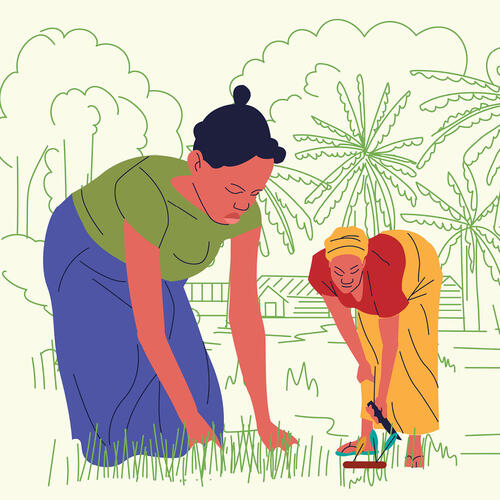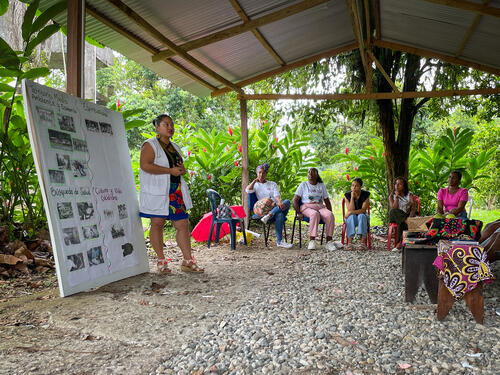Many areas of Colombia continue to be affected by conflict despite a 2016 peace agreement. Our teams are working to provide more accessible care to people in conflict-affected areas.
Our activities in 2023 in Colombia
Data and information from the International Activity Report 2023.
82
82
€3.6 M
3.6M
1985
1985
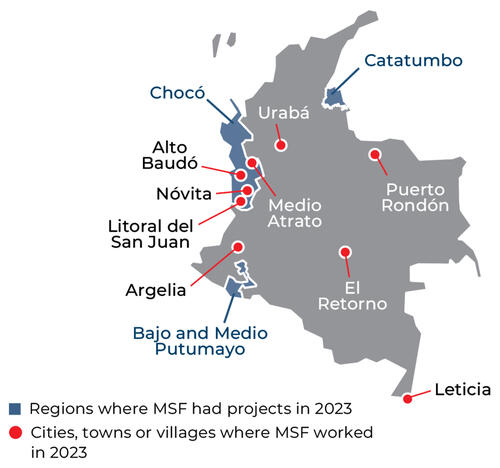

4,990
4,99
940
94
350
35
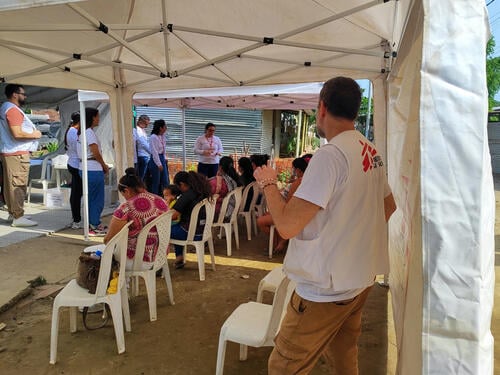
Worsening conflict leaves tens of thousands without essential care in Colombia
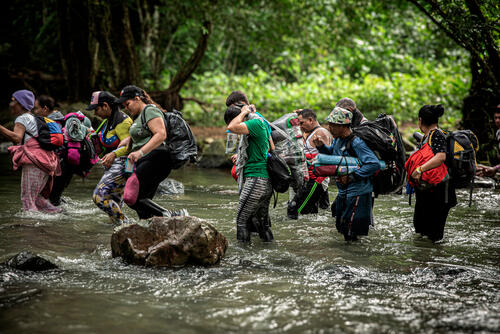
Migrants left without protection as Darién Gap crossings reach half a million
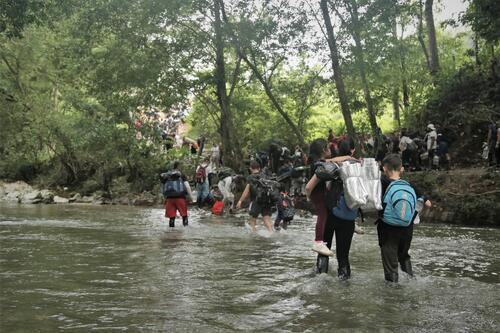
Incidents of sexual violence spike for those crossing Panama’s Darién Gap
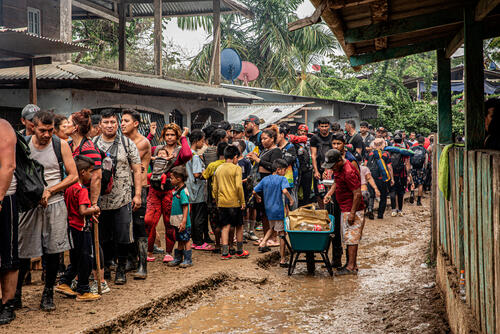
Migrants arriving in Panama in urgent need of assistance
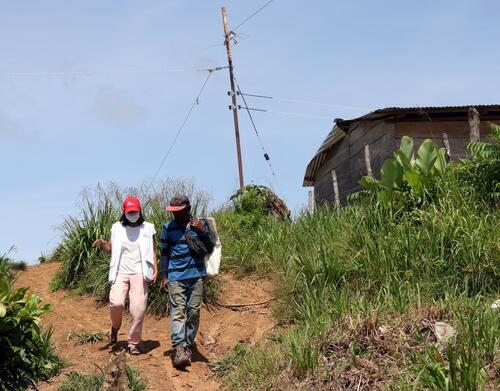
Humanitarian needs persist on Colombia and Venezuela border
